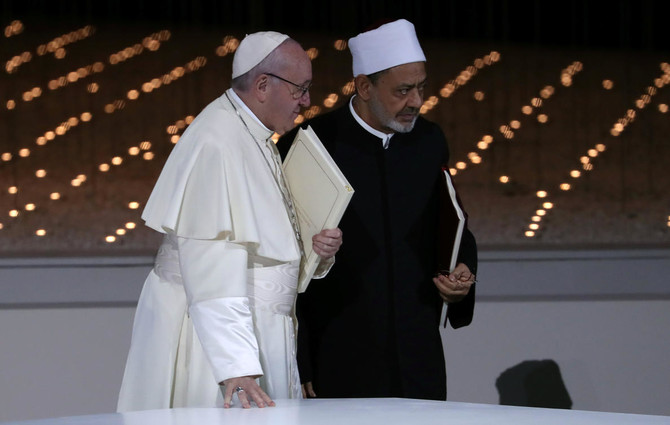Why We’ve Got to Get the Coronavirus Response Right, by Peter Brookes, Brayden Helwig
March 6, 2020The Danger of the Attacks on the Electoral College, by Trent England (2019)
March 6, 2020
By Eric Sammons, Crisis Magazine, March 6, 2020
Eric Sammons, a former Evangelical, entered the Catholic Church in 1993 and has been involved in Catholic evangelization efforts for over two decades. He is a freelance writer, editor, and the author of several books, including …
“Dialogue is our method… The path ahead, then, is dialogue among yourselves, dialogue in your presbyterates, dialogue with lay persons, dialogue with families, dialogue with society. I cannot ever tire of encouraging you to dialogue fearlessly.” —Pope Francis, Address to the U.S. Bishops, September 23, 2015
 In the halls of Catholic chanceries around the world, the term “dialogue” has become an Eastern mantra, repeated over and over as if the word itself has the spiritual power to break down divisions, heal wounds, and bring about the Age of Aquarius (although I’d prefer a return to the Age of Aquinas). Do a Google search on the Vatican website for the word “dialogue;” you’ll get over 33,000 results while words like “evangelization” and “conversion” return less than half as many. The U.S. Conference of Catholic Bishops alone is currently involved in more than 20 official “dialogues” with various religious groups. Dialogue is lit.
In the halls of Catholic chanceries around the world, the term “dialogue” has become an Eastern mantra, repeated over and over as if the word itself has the spiritual power to break down divisions, heal wounds, and bring about the Age of Aquarius (although I’d prefer a return to the Age of Aquinas). Do a Google search on the Vatican website for the word “dialogue;” you’ll get over 33,000 results while words like “evangelization” and “conversion” return less than half as many. The U.S. Conference of Catholic Bishops alone is currently involved in more than 20 official “dialogues” with various religious groups. Dialogue is lit.
On the other hand, the Bible tells the story of a world sharply divided between those who follow God and those who do not. Salvation history is the tale of setting apart one group of people from the rest of the world, and the dangers that arise when that set-apart people mixes with other peoples. This is a theme that runs from Genesis, when Abraham and his descendants are set apart to be God’s people, to Revelation, when the final, permanent, division will occur. ….







